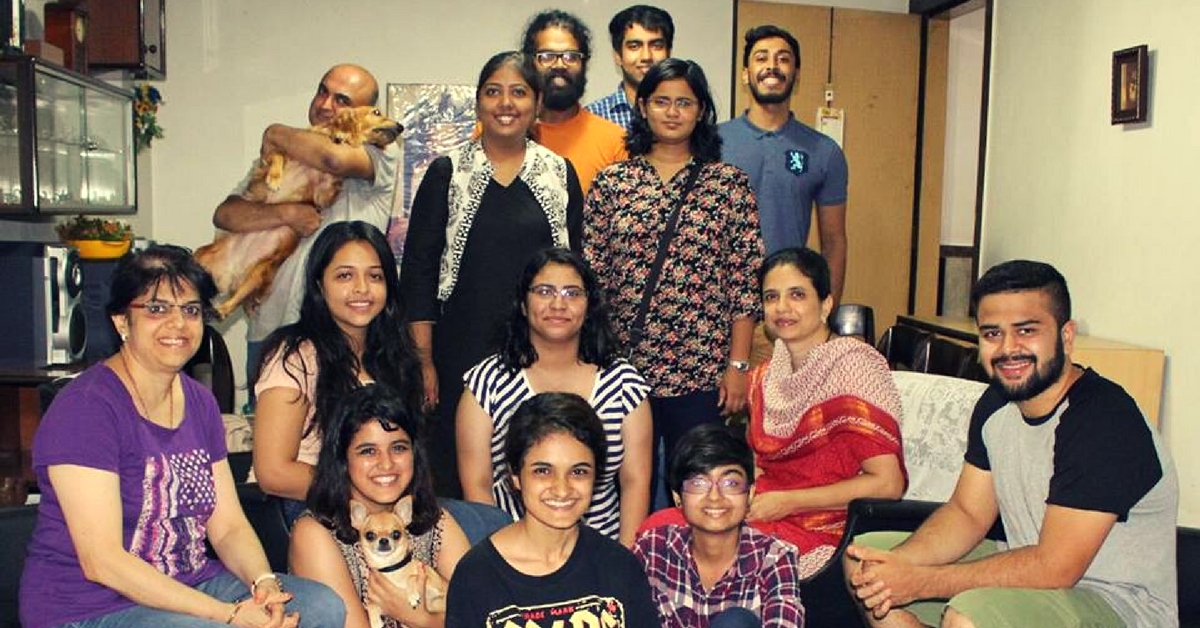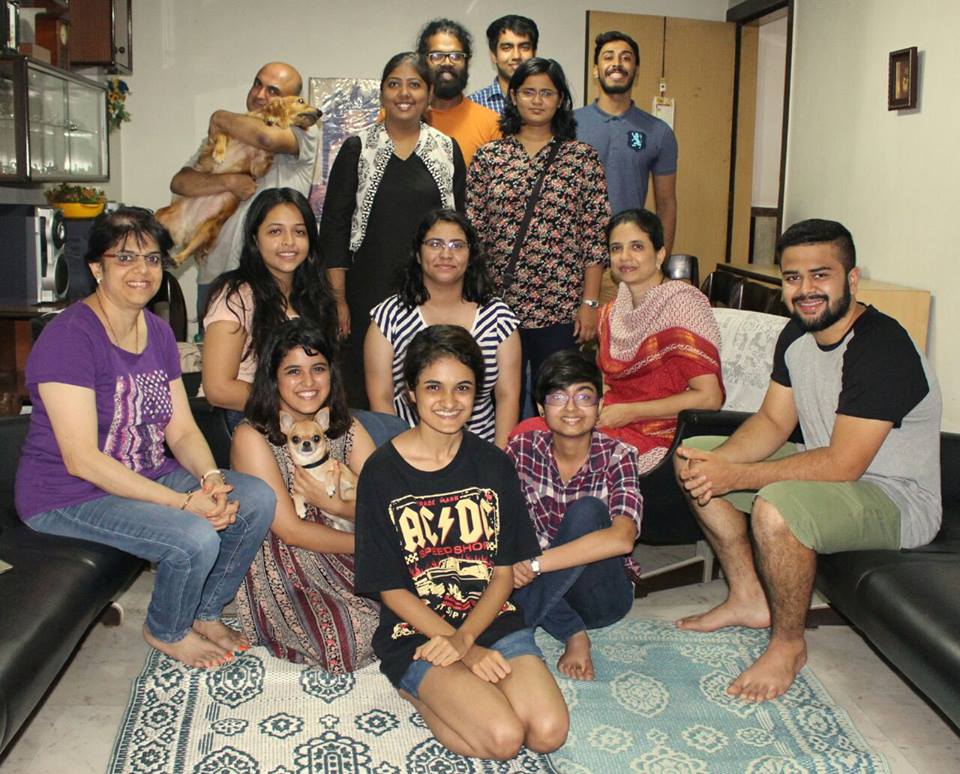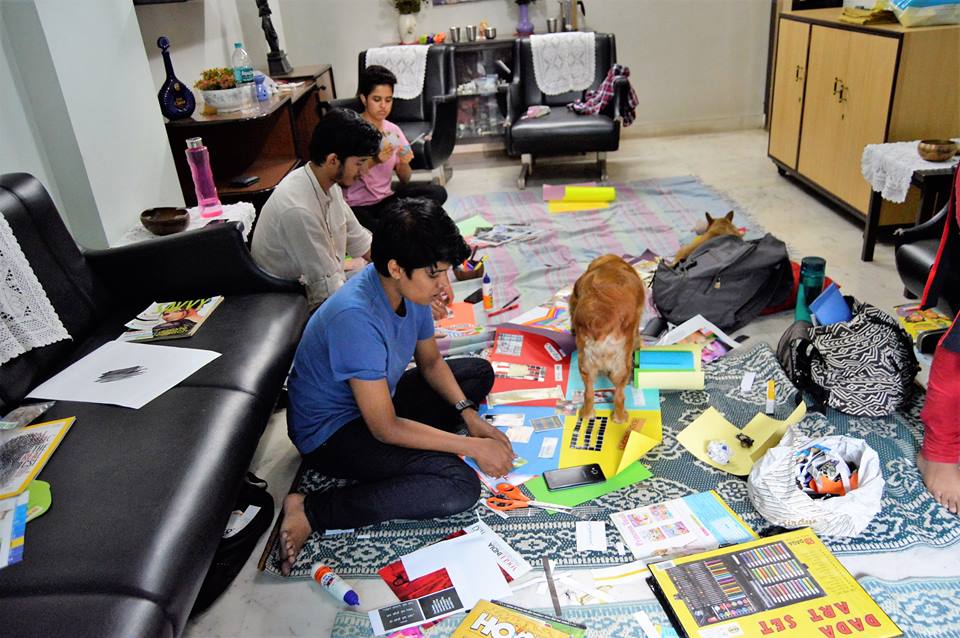In This Support Group, Youngsters Open up about Abuse, Shame & Trauma without the Fear of Judgement
An active community spread across Mumbai and Bengaluru, The Circle functions as a support group for youngsters to share their stories of abuse, embarrassment and trauma without facing judgement, moral policing or stigma.

Stories of abuse are often hushed up. At least that’s what we observe, learn and imbibe as we grow up. As a result, the stigma against abuse takes stronger roots in the society and any dialogue around the subject is muted.
A group of students from Mumbai’s Wilson College is trying to make a difference through The Circle—a support group that enables the process of sharing and healing.

In 2014, four friends and students of Wilson College, Nadiya, Pooja, Mitali and Adrija sat together to discuss the rampant sexual harassment that women are subjected to. The like-minded and understanding friends ended up sharing their own stories of harassment and abuse with each other.
“It was a cathartic process for us. We think we talk about assault a lot, but that’s not true. We only talk about abuse on a superficial level—we don’t discuss why it happens, we don’t discuss what abuse does to you as a human being,” says Pooja.
The quartet decided to create a safe space, like they had found in each other, for more people and thus The Circle was born. This circle of support was meant to be accessible for anyone and everyone to share their stories without fear or hesitation.
Also read: In this Award-Winning Comic Book Series, Rape and Acid Attack Survivors are Heroes, not Victims
“When I came to know that such a meeting was happening, I decided to attend it out of curiosity,” recalls Aarti, another core member of team Circle. “I had my own story and I wanted to gauge if there really was a safe haven to share it. About 20 people had turned up and Pooja began the session by sharing her story. It wasn’t easy for her, but there was an immense trust in everyone present. Slowly the group opened up and everyone started talking.”
Slowly, the initiative evolved into a community where not only stories of abuse were discussed, but also several relevant issues faced by the generation, like sex education, abusive relationships, career goals, relationship with parents and alcohol addiction.
The core team prefers not to use their last names. The group encourages participation and its members do not dwell on people’s names. The idea is building a non-judgemental platform, where everyone is welcome and recognised as a human being. There’s only one rule: don’t talk about the stories shared in the sessions outside The Circle.
“We just want to be there for people. After starting to share stories of abuse, we also realised that different psychological disorders like depression and anxiety are closely related to and sometimes stem from, abuse. We aren’t experts, but we can be the first step, helping them get in touch with a mental health professional. And we’re also there to offer support in case one can’t or doesn’t want to see a professional,” says Aarti.
The meetings are usually held at the houses of members, which makes them personal and intimate for the members.

The idea of a safe space is perpetuated through the cosiness of each other’s homes. The group has also been urging schools and colleges to start similar cells that deal with sexual abuse and assault, regardless of gender. The initiative has now also spread to Bengaluru, after Pooja moved to the city.
One of the ideas that have evolved through the journey of the support group is mental first aid.
“We train people in providing ‘mental first aid’. It’s important to know how to communicate with someone who has just been through a traumatic incident or a person who is depressed,” says Aarti. “Just like you don’t need to be a doctor to attend to a wound that needs urgent attention, with some basic understanding of how the mind works and loads of empathy, one can become a sympathetic ear for anyone in need of healing.”
Also read: This Social Entrepreneur From Kolkata Has Rehabilitated 100+ Survivors of Sex Trafficking
To know more about The Circle, visit its Facebook page.
Like this story? Or have something to share? Write to us: [email protected], or connect with us on Facebook and Twitter.
NEW: Click here to get positive news on WhatsApp!
If you found our stories insightful, informative, or even just enjoyable, we invite you to consider making a voluntary payment to support the work we do at The Better India. Your contribution helps us continue producing quality content that educates, inspires, and drives positive change.
Choose one of the payment options below for your contribution-
By paying for the stories you value, you directly contribute to sustaining our efforts focused on making a difference in the world. Together, let’s ensure that impactful stories continue to be told and shared, enriching lives and communities alike.
Thank you for your support. Here are some frequently asked questions you might find helpful to know why you are contributing?


This story made me
-
97
-
121
-
89
-
167











